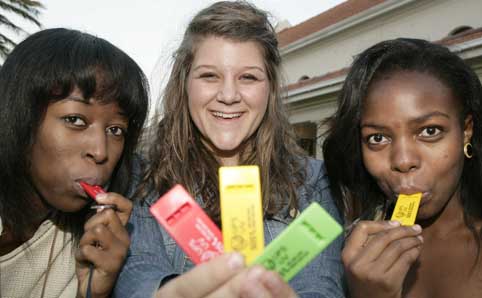Latest News Archive
Please select Category, Year, and then Month to display items
12 October 2020
|
Story Dr Cindé Greyling
|
Photo Supplied
 Exercise and nutrition can work wonders for your mental health – you don’t even have to ‘feel like’ or ‘enjoy’ moving around and eating well for it to work – it does its thing anyway.
Exercise and nutrition can work wonders for your mental health – you don’t even have to ‘feel like’ or ‘enjoy’ moving around and eating well for it to work – it does its thing anyway.
Nowadays, people talk about mental health like it is the common cold – which is good! But do you know what it really means? Being mentally healthy does not only refer to the absence of a mental illness but includes your emotional and social well-being. One would almost want to add physical well-being too, since a healthy body does indeed support a healthy mind. However, since so many people consider themselves ‘mental health experts’, some myths have been sold as truths.
Myth #1 – You are doomed.
Nope. Never. You are never doomed. There is always help. Mental-health therapies range from self-help, talk therapy, medication, to hospitalisation in some cases. Somewhere on this spectrum of treatments, there will be something that works for you. But you must be willing to get the help and do the work. For starters, exercise and nutrition can work wonders – you do not even have to ‘feel like’ or ‘enjoy’ moving around and eating well for it to work – it does its thing anyway.
Myth #2 – It won’t affect you.
It may. Research suggests that one in five people may suffer from a mental illness at some point in their lives. Being well now does not mean that it will stay that way. Biological and environmental factors both impact your mental health. Hopefully not, but at some point, you may experience an event that affects your mental health.
To remain integrated in a community is always beneficial
for anyone suffering from a mental or physical condition.
Myth #3 – Someone struggling with mental health must be left alone.
Hardly! To remain integrated in a community is always beneficial for anyone suffering from a mental or physical condition. You do not need to fix them, but to remain a friend. Continue to invite them, even if they decline. Do not judge, and do not try to understand. Just stay around.
Go and be kind to yourself, and to those around you.
Increasing safety measures
2012-06-07
 |
|
Safe at Kovsies are from the left: Thando Tuta, Roosmaryn Residence; Elizca Jacobs, Soetdoring Residence; and Phumudzo Rammbwa, Kestell Residence.
Photo: Johan Roux
07 June 2012
|
The University of the Free State is blowing the whistle on crime - literally. To increase safety on its campuses, the university presented whistles to female students in residences on the Bloemfontein Campus.
Students can blow the whistles when they are in danger to alert those nearby. Security personnel patrolling the campus will be alerted by the whistles if assistance is needed.
“We will do everything to keep you safe,” Prof. Jonathan Jansen told residence primes and committee members who collected the whistles on behalf of their residences. “Safety is not something we take for granted”, Prof. Jansen said, informing them that the campus is one of the safest in the country.
Other safety measures the university has undertaken include the installation of more than 30 red poles across the entire campus. Each of these red poles is fitted with a panic button that can be activated to summon help. .Should a student or staff member feel unsafe, all they have to do is press the button and cameras, which are installed in the vicinity, will focus on the pole and Protection Services will send assistance.